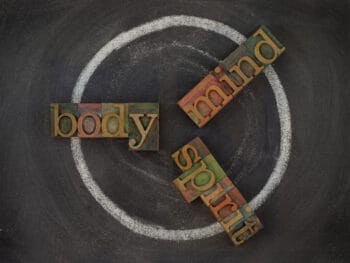Understanding Depression – A Definition
Depression is a condition that is often seen in workers who have been out of work for long periods of time.
There are two major schools of thought on the cause of depression. The first holds that depression is the result of chemical imbalances in the brain and advises treatment with anti-depressant drugs. The tricyclic antidepressants, (Elavil®), have fallen from favor, but are still used. Selective serotonin reuptake inhibitors (SSRI), ( Zoloft®, Prozac®, Paxil®, Lexapro®), are thought to work better with fewer side effects. For many patients, drugs combining the inhibition of serotonin and norepinephrine reuptake (SSNRI) seem to be a better choice. If you simply prescribe drugs, more than half of patients will improve dramatically.
A second school holds that depression is the result of ideas people have about themselves. The psychiatrist who advanced this theory noticed most of these ideas held by his patients were wrong, or only partly true. He developed a system, called cognitive therapy, to teach patients to recognize the ideas leading to depression, then to test them to see to what extent they were true or partly true. Treatment using cognitive therapy is usually short-term, less than three months, and demand a bit more work than traditional therapy (workersxzcompxzkit). The therapist may ask the patient to note certain things during the week and be prepared to discuss them at the next session. If you simply use this therapy on patients, about the same percent get well as got well with drugs alone.
Combining drugs and cognitive therapy, results in about half again as many people getting well.
If symptoms are mild and intermittent, try reading Feeling Good: The New Mood Therapy, by David Burns, M.D. It is a self-help book based on cognitive therapy which psychologists say “got it right” –unusual praise for a self-help book. If there is evidence of bipolar disorder defined as swings in mood from higher-than-normal energy and optimism to spells of depression, then mood stabilizers may work better than anti-depressants alone.
Author: Sandford S. Leffingwell, M.D., MPH is a board certified specialist in occupational medicine, with degrees from Harvard University, University of Colorado School of Medicine and The Johns Hopkins School of Hygiene and Public Health. He can be reached at ssl@hlmconsultants.com. www.hlmconsultants.com
Click on these links to try it for yourself.
WC Calculator www.ReduceYourWorkersComp.com/calculator.php
TD Calculator www.ReduceYourWorkersComp.com/transitional-duty-cost-calculator.php
WC 101 www.ReduceYourWorkersComp.com/workers_comp.php
Do not use this information without independent verification. All state laws are different so do not implement any cost containment procedures until you have discussed them with your corporate counsel. Your individual doctor must treat medical issues. We are not giving medical advice; this is an overview of wellness topics, not medical advice.
©2008 Amaxx Risk Solutions, Inc. All rights reserved under International Copyright Law. If you would like permission to reprint this material, contact Info@WorkersCompKit.com























